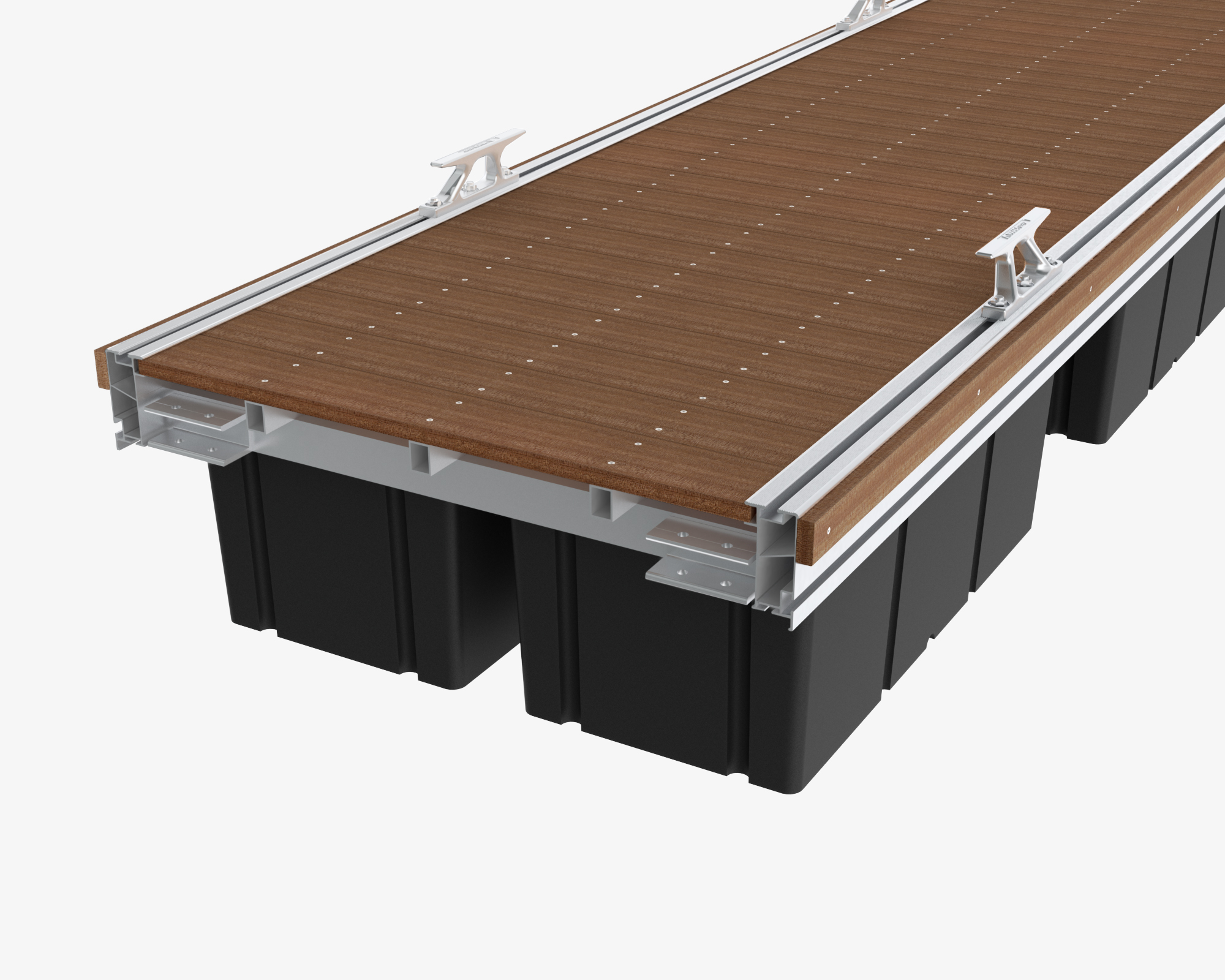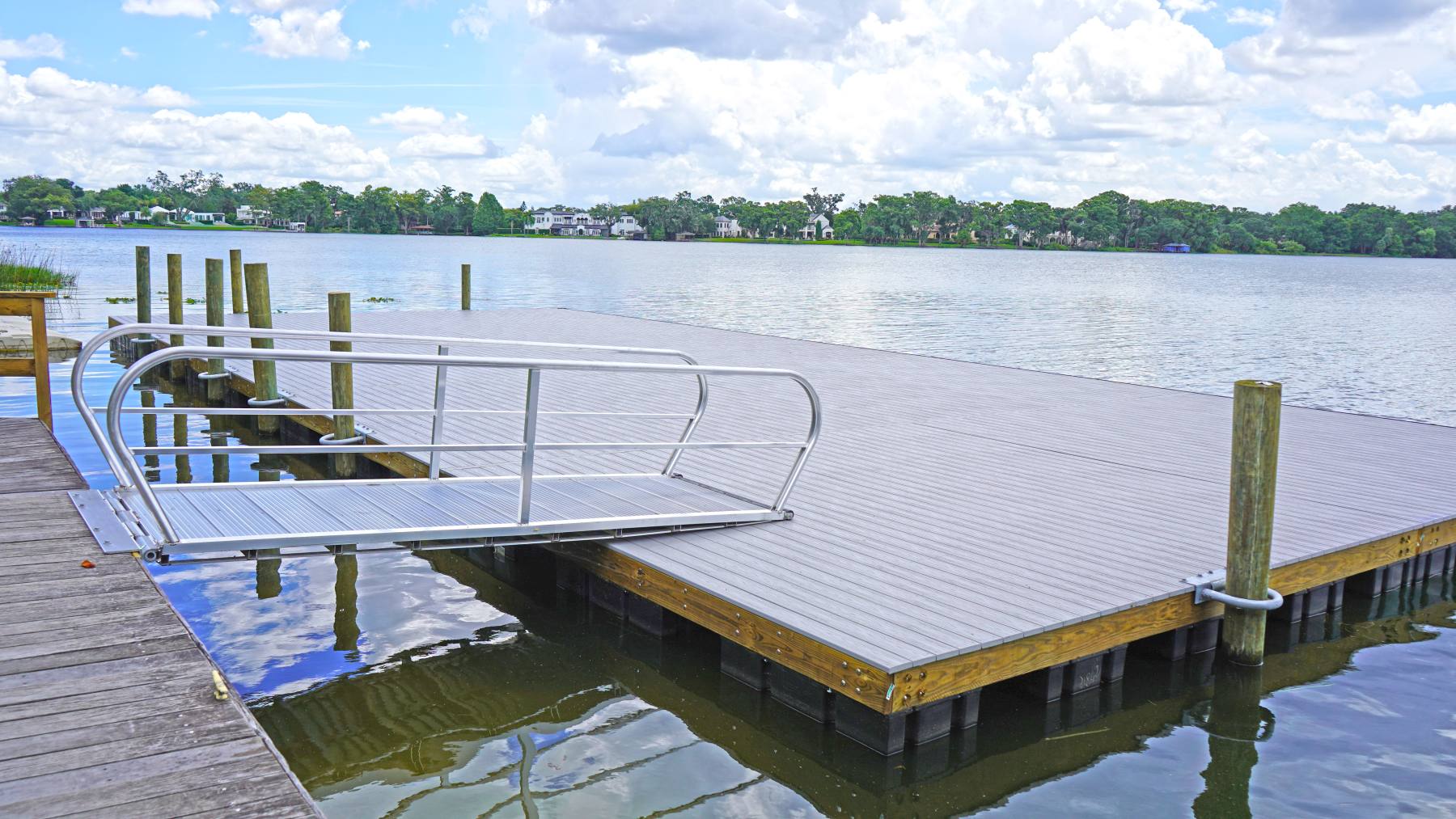The Ultimate Overview to Selecting the very best Floating Docks
Selecting the suitable floating dock requires an extensive understanding of numerous elements that influence both performance and durability. Aspects such as dock types, materials, and necessary attributes significantly impact your decision-making process. Additionally, considerations around installation and budget can even more complicate the choice. By examining these aspects systematically, one can ensure a financial investment that not only satisfies immediate needs yet likewise boosts general home worth. As we explore these critical components, it becomes clear that the appropriate selections can cause a long-term and useful solution customized to your certain requirements.
Comprehending Floating Dock Types
When selecting a floating dock, it is necessary to recognize the different kinds offered, as each offers unique purposes and applications. Floating docks largely fall under three groups: modular, stationary, and pontoon docks.
Modular docks are composed of individual areas that can be quickly put together or reconfigured, making them ideal for altering water degrees and diverse uses, such as recreational tasks or industrial procedures. Their flexibility enables personalization based upon particular requirements.

Pontoon docks are defined by their resilient structure, typically composed of several pontoons that offer security and assistance. They are particularly fit for bigger vessels and are typically made use of in marinas or for waterfront properties. Comprehending these types help in selecting one of the most appropriate floating dock to meet details requirements, ensuring ideal functionality and safety.
Trick Materials for Resilience
Choosing the right materials for floating docks significantly effects their durability and durability. One of the most common products consist of wood, plastic, steel, and composite products, each offering distinct benefits and constraints.
Wood, commonly favored for its aesthetic allure, requires regular upkeep to hold up against moisture and decay. Pressure-treated lumber can boost resistance to rot, but it may still be at risk to pests and weathering.

Plastic docks, made from high-density polyethylene (HDPE), are resistant to corrosion, UV radiation, and effect, making them a prominent choice for seaside atmospheres. Their light-weight nature likewise helps with very easy installment and moving.
Metal docks, generally created from aluminum or galvanized steel, give phenomenal strength and resilience. They are immune to corrosion, particularly when treated, however might require extra insulation to protect against warmth build-up in hot climates.
Composite products, incorporating wood fibers and plastics, provide the advantages of both wood and plastic, withstanding dampness and fading while requiring very little maintenance. - dock company
Ultimately, the option of products should align with ecological problems, intended use, and maintenance preferences to ensure the floating dock stays practical and cosmetically pleasing over time.
Necessary Attributes to Consider
While the option of materials is vital, taking into consideration vital functions go to my site for floating docks is similarly vital to make certain optimal performance and customer complete satisfaction. One crucial function to examine is the dock's buoyancy ability, which establishes just how much weight it can support without submerging. floating dock builder. This is important for fitting boats, personal watercraft, and even leisure activities
Furthermore, mobility is a significant consideration. Depending on your demands, you might desire a dock that is very easy to move and dismantle, especially if you prepare to move it seasonally. Stability is another important feature; a properly designed floating dock must reduce activity created by wind and water currents, supplying a safe platform for customers.
Security features, such as non-slip surface areas and rounded edges, are also vital to stop accidents, especially in damp conditions. Furthermore, take into consideration the accessibility of accessories, such as bumpers, ladders, and cleats, which can improve the functionality of your dock.
Installation and Upkeep Tips
Establishing and preserving a floating dock calls for careful preparation and resource focus to detail to ensure its long life and optimal performance. Begin by selecting a proper area that reduces exposure to solid currents and waves, which can create wear and tear. Guarantee that the water depth is adequate for the dock's elevation which it is secured securely to avoid activity.
Throughout setup, adhere to the manufacturer's guidelines carefully, as incorrect assembly can jeopardize stability. Use high-grade materials resistant to corrosion, such as aluminum or treated wood, to boost resilience. Consistently inspect all components, including floats, connectors, and anchoring systems, for signs of damage or wear.
Maintenance is vital for prolonging the life of your dock. Tidy the surfaces regularly to avoid algae accumulation and look for any type of loose fittings that may require firm. If your dock makes use of flotation protection tools, guarantee they remain intact and cost-free from punctures. Furthermore, think about applying safety layers to wood parts to lower weathering impacts. By adhering to these installment and upkeep suggestions, you can enjoy a useful and trustworthy floating dock for many years to come.
Budgeting for Your Dock
Budgeting for your dock is a vital action that can considerably influence your general complete satisfaction and financial investment in a waterside home. Developing a clear budget aids you navigate the different alternatives available and guarantees you make educated decisions that align with your economic abilities.
Begin by figuring out the dimension and design of the dock you need, as these aspects will greatly influence the price. Floating docks can differ significantly in cost, relying on products, buoyancy, and attributes like ramps and devices. Research various makers and distributors to contrast rates read and understand the marketplace value.
Along with first prices, consider ongoing expenses such as maintenance, insurance coverage, and possible fixings. Allot funds for these recurring costs to avoid shocks down the line. It's additionally prudent to allocate any type of required permits or evaluations, which may be required by local regulations.
Last but not least, maintain in mind the possible return on financial investment. A well-planned dock can enhance your residential property's worth and appeal, supplying a favorable financial impact in the lengthy term. By budgeting successfully, you can make sure that your dock satisfies your needs without compromising your financial security.
Verdict
In final thought, picking the perfect floating dock demands a complete evaluation of different variables, including dock types, materials, crucial functions, and installment procedures. Prioritizing toughness and conformity with local policies eventually boosts performance and property value. Careful consideration of monetary restrictions will certainly better guarantee a sound financial investment. By sticking to these standards, people can make enlightened choices that advertise lasting satisfaction and functionality in aquatic atmospheres.

While the choice of materials is critical, considering necessary attributes for floating docks is just as crucial to guarantee ideal performance and customer fulfillment.Setting up and maintaining a floating dock needs cautious preparation and focus to information to guarantee its longevity and optimal performance. Floating docks can differ considerably in cost, depending on products, buoyancy, and attributes like devices and ramps.In verdict, picking the perfect floating dock requires a comprehensive assessment of different elements, including dock types, materials, important features, and installation procedures.
Comments on “Top Factors to Partner with a Reliable Floating Dock Company for Your Following Project”